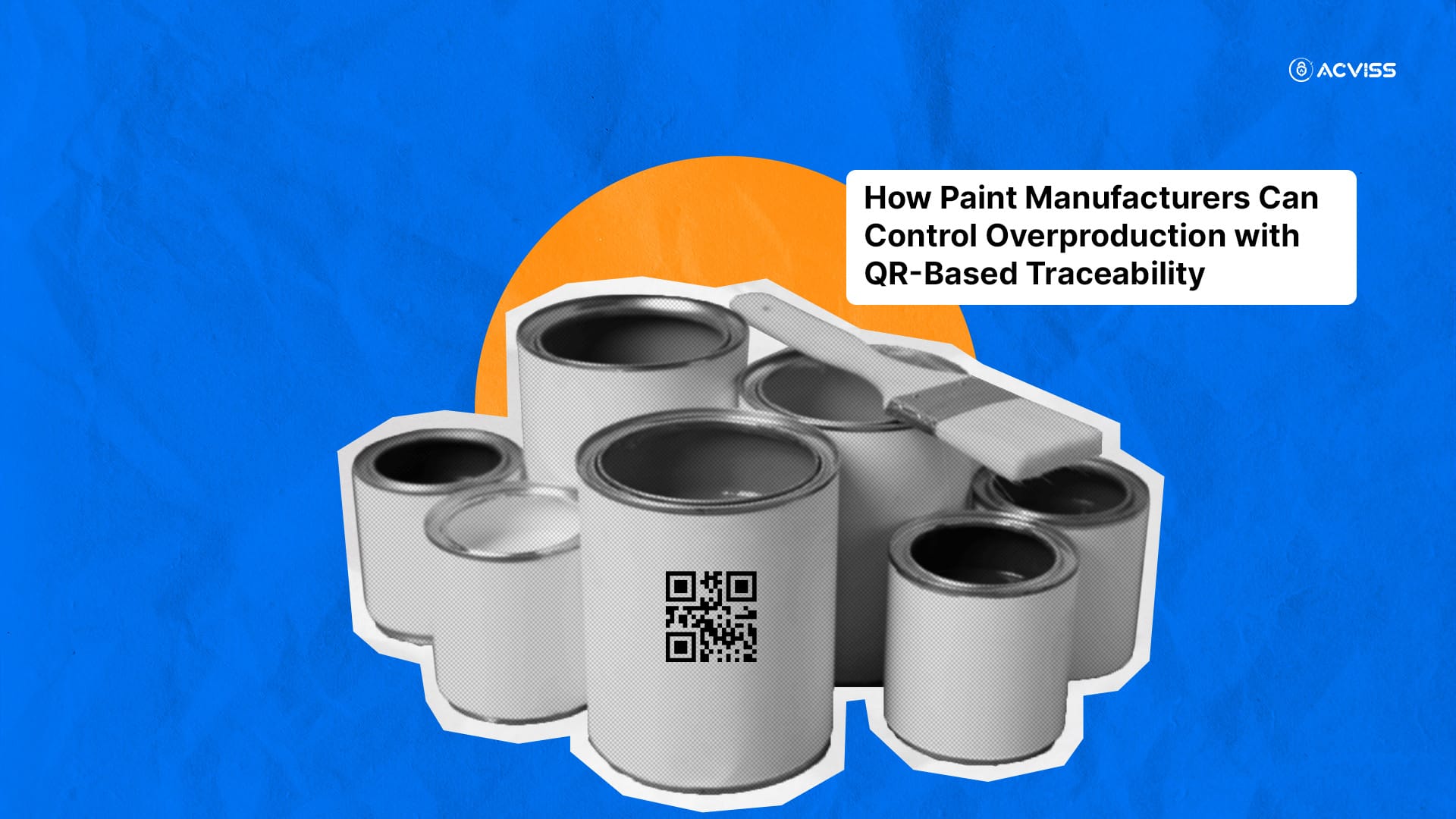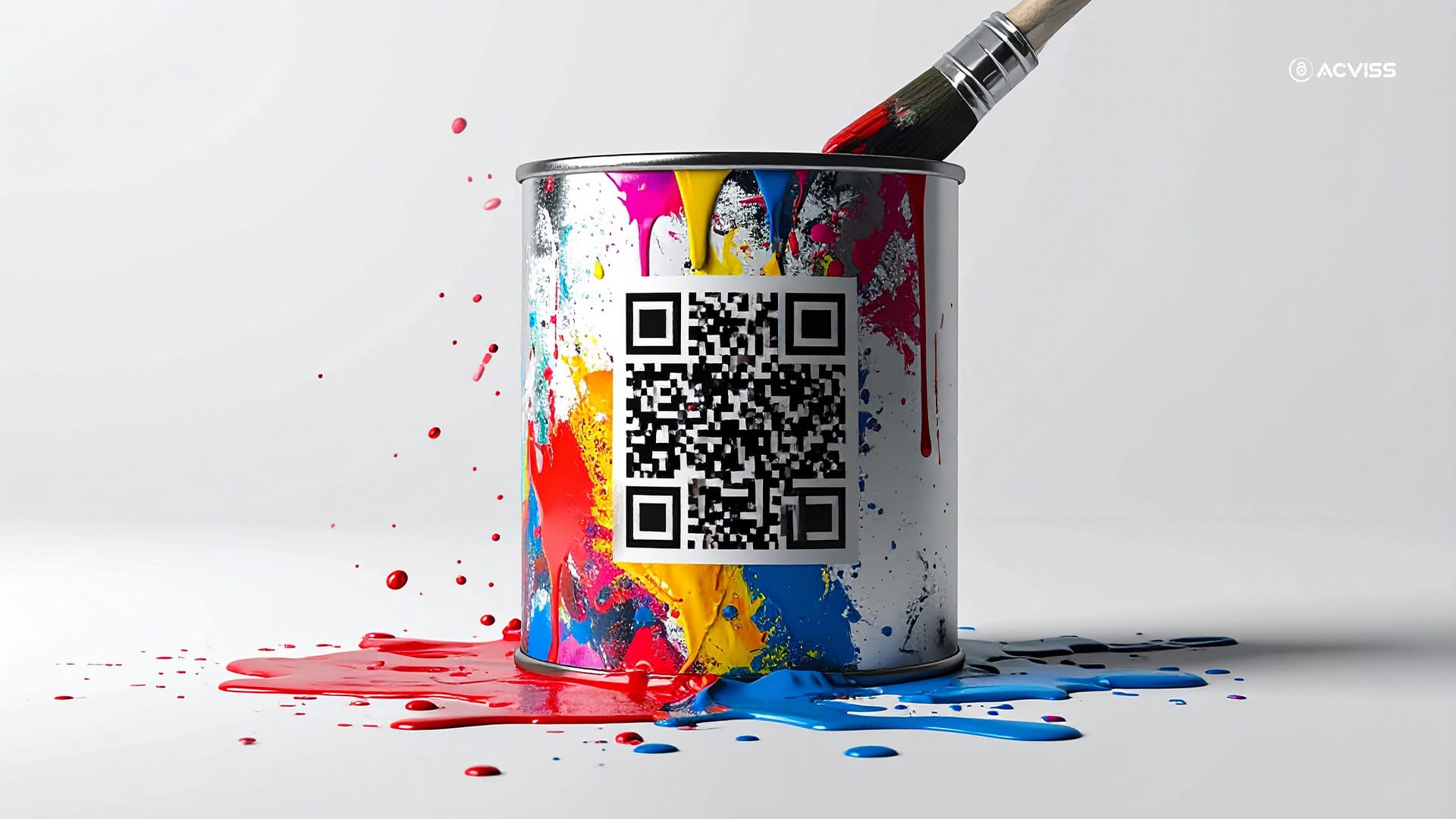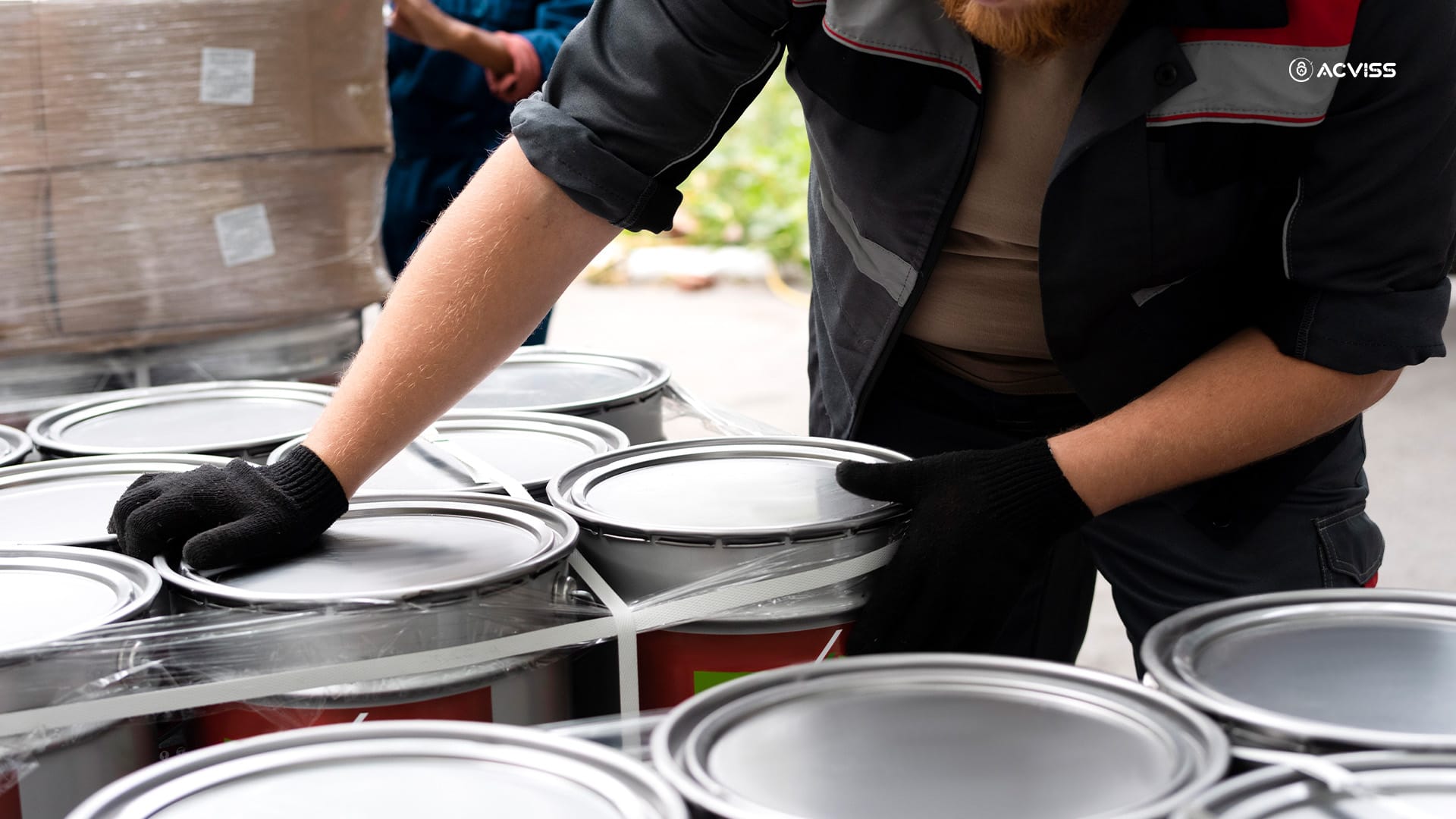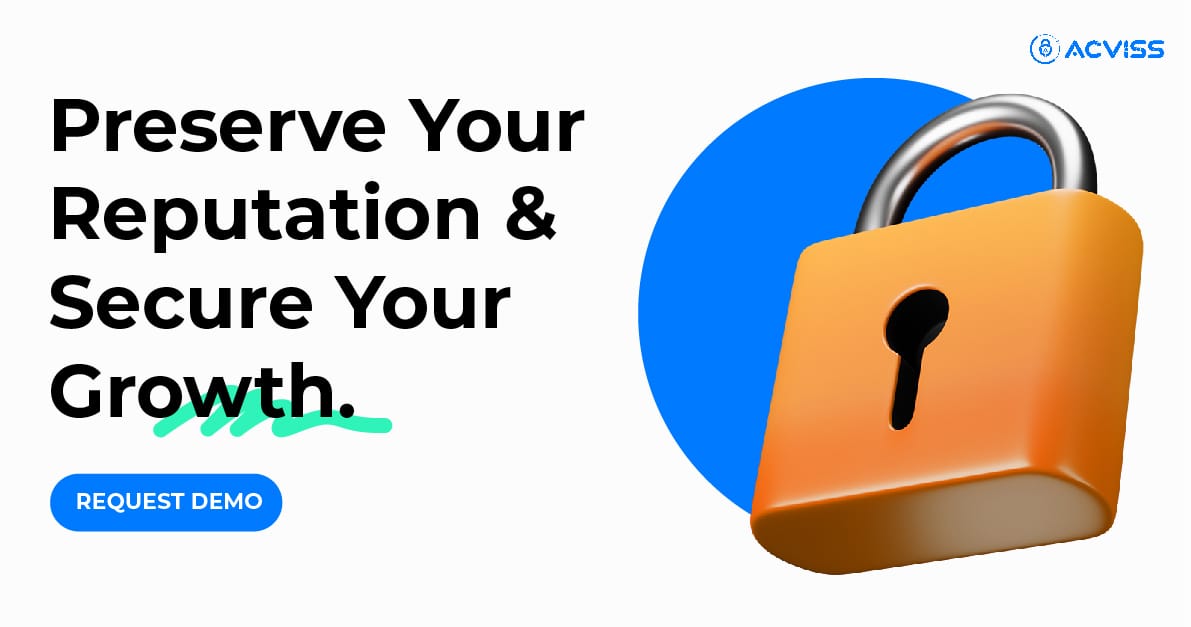How Paint Manufacturers Can Control Overproduction with QR-Based Traceability

Overproduction is one of the most expensive problems hiding in plain sight for paint manufacturers. Producing more units than the market needs might seem harmless, after all, extra inventory sounds better than a shortage. But unchecked production often creates issues far beyond storage headaches. It can drain revenue, open doors for dealer fraud, and even dilute your brand’s reputation.
The paint industry, with its complex supply chains and razor-thin margins, cannot afford these leaks. QR-based traceability technology is proving to be a practical, cost-effective way for manufacturers to stay in control, down to the very last can.
Why Overproduction Hurts Paint Brands
Overproduction isn’t just a factory management issue; it’s a brand protection problem. Here’s why it matters:
1. Revenue Drain Through Grey-Market Leakage
Those extra, unauthorised cans don’t just sit quietly in a warehouse. They often find their way into the grey market, where dealers sell them at discounted prices. These under-the-table sales directly undercut your official distributors and eat into margins.
2. Brand Dilution and Fraud
When unauthorised cans reach customers without your quality checks or proper documentation, your brand’s reputation is at risk. If a customer gets a subpar product, they won’t blame the dealer who slipped it into circulation; they’ll blame you.
3. Inventory Mismanagement
Warehouses cluttered with unaccounted stock create inefficiencies across the supply chain. It complicates inventory planning, leads to unnecessary production costs, and can even cause stockouts of your most in-demand colours or finishes.
4. Compliance and Legal Risks
Paint manufacturing involves chemicals regulated by environmental and safety laws. Untracked or undocumented units could leave your business exposed to penalties or audits if they end up in the wrong place.

How QR-Based Traceability Solves Overproduction
Modern QR-based systems, like those from Acviss, bring transparency and control to every step of production and distribution. By assigning a unique identity to every single can, manufacturers can see exactly what’s happening on the factory floor and in the market.
Here’s how it works in practice:
1. Unit-Level QR Labelling with Tamper-Proof Codes
Each paint can gets its own secure QR code, sometimes called a Uniqolabel. These aren’t simple printed stickers; they’re tamper-proof and nearly impossible to clone or reuse.
Accountability from start to finish: From the production line to the retail shelf, every can is accounted for.
Instant authentication: Dealers and even end customers can scan the code to verify that a product is genuine.
Elimination of ghost production: Any can without a registered code is automatically flagged as suspicious.
2. Real-Time Production Logs for Immediate Visibility
Systems like Certify by Acviss automatically log every scan of these codes. Each scan captures the timestamp, location, and device ID, linking directly to your approved batch records.
This allows your quality control or operations team to quickly spot discrepancies. For example:
If 20,000 cans were scheduled for a batch, but 21,000 QR scans show up in the logs, you’ll know there’s an issue.
If cans are being scanned outside your authorised distribution regions, you can track and investigate right away.
3. Centralised Data Dashboards for Smarter Decisions
A big advantage of QR-based traceability is that all this data feeds into easy-to-use dashboards. This is where Origin by Acviss shines. Origin isn’t just a monitoring tool; it gives brand managers a single source of truth about their production and distribution.
With Origin, you can:
Compare approved batch sizes with actual output in real time.
Spot anomalies like duplicate codes or unregistered stock before they reach customers.
Receive alerts when suspicious activity is detected, so you can act quickly.
By making data visible and actionable, Origin helps teams stay proactive rather than reactive.

A Real-World Scenario: Spotting Overproduction Early
Let’s say you’ve approved an order for 20,000 paint cans to fulfil a regional demand forecast. A factory supervisor, hoping to boost short-term revenue through unauthorised channels, tries to push an extra 1,000 cans into circulation.
With QR-based tracking:
The system registers only the 20,000 approved codes.
When the extra 1,000 appear in dealer scans, Origin immediately flags the mismatch.
You can trace exactly where those extra units entered the chain, block their sale, and take corrective action before they reach consumers.
This early detection prevents lost revenue, keeps your legitimate dealers happy, and protects your brand’s credibility.
Benefits Beyond Overproduction Control
The advantages of QR-based traceability go far beyond just catching excess cans. Paint manufacturers can unlock a wide range of operational and strategic benefits:
1. Full Control Over Output
No more guessing or relying solely on manual reports. Every can is digitally recorded, ensuring your factory output matches your business plans.
2. Higher Supply Chain Transparency
From the production line to the dealer’s shelf, every handoff is logged and visible. This transparency can improve relationships with distributors, who can trust that the playing field is fair.
3. Reduced Financial Losses
By stopping revenue leaks early, you’re safeguarding profits. Over time, even small instances of overproduction can add up to significant losses.
4. Improved Customer Trust
Customers who scan your QR codes and see verified, authentic products will feel more confident in your brand. This can even become a selling point, especially as counterfeit risks become more widely understood.
5. Easier Compliance Management
Should regulators request proof of production volumes or chemical tracking, you’ll have accurate, time-stamped records ready to go, saving time and avoiding potential penalties.
Implementing QR-Based Traceability in Your Manufacturing Process
Switching to QR-based traceability doesn’t have to be complicated or expensive. Here are some best practices to get started:
Map Your Current Production Flow
Understand every step where cans are produced, labelled, stored, and distributed. Identify where leaks or unauthorised activity might occur.Choose a Reliable Technology Partner
Look for providers with proven, tamper-proof QR solutions and real-time dashboards. Tools like Origin by Acviss integrate easily into existing production systems without disrupting operations.Train Your Teams and Dealers
Production staff, warehouse teams, and dealers should know how to scan and verify codes. Building this awareness ensures the system works across the supply chain.Start with a Pilot Batch
Test the system with a smaller production run. Use the data to refine processes before rolling it out across all product lines.Monitor and Iterate
Overproduction control isn’t a one-and-done effort. Use dashboard insights to adjust production planning, forecast demand more accurately, and maintain healthy dealer relationships.
The Bigger Picture: Protecting Margins and Brand Value
In today’s competitive paint market, margins are already thin. Overproduction doesn’t just eat into profits; it erodes trust with distributors, customers, and even regulators. By giving each paint can a digital identity, QR-based traceability ensures you’re always in control of your products and your brand.
Solutions like Origin make this process seamless, helping manufacturers monitor output, spot fraud, and prevent revenue leakage without burdening their teams. Book your demo today and stop counterfeiters before they reach your customers.
